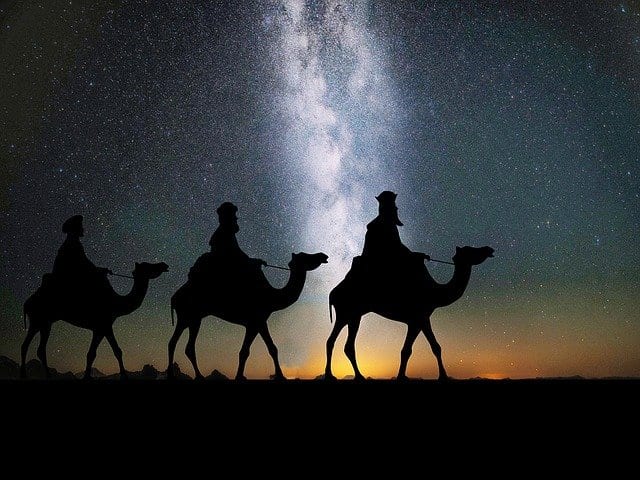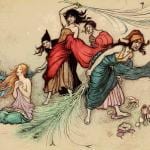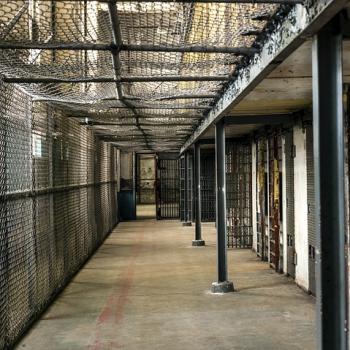
The Lord was born, the Son of Mary, in Bethlehem of Judea, in the reign of Caesar Augustus, when Herod was tetrarch of Galilee.
He is the Lord of all times and all places. There never was a time or a place that God did not create, and in which God was not present. There has never been a culture, a race, an era, a social class, or a gender that was separated from God. But when the Son, the Second Person of the Blessed Trinity, became flesh, He became a Jewish boy in the Middle East, in the town of Bethlehem, in Judea, under Herod.
God became Man, and human beings are not like God. We are not beings who are everywhere present and filling all things. We are just ourselves: me with my experience and you with yours. Me a woman and you a man. Me a Latin Catholic of Irish heritage who married an Italian and has lived her whole life in the state of Ohio. You, somebody else, from a different culture, in a different geographical region. God is God, eternal, Master of all times and places, and nothing is foreign or unusual to Him. All things are His in the first place. You and I are human beings, finite, existing in this body and not another, in this culture at this time. We own nothing, but many different factors own us. We are bound to time, to place, to culture, to bodies, and to all kinds of other things.
This is what it means when we hear that Christ took the form of a slave. You and I and every human that has ever lived are not free. We are slaves to many things.
That was what God took on Himself when the Word became Flesh.
The God of Gods took it on Himself to become Man.
And in doing this, He cast down every division between human beings, and gathered all people to Himself.
Here are the Magi from the East, from foreign places like the people of Judea can only dream of. They are wealthy, powerful, learned and respected men. They don’t worship the God of Israel. They practice divination, which the God of Israel forbids. They watch the stars for signs and portents. They’ve just seen a great big portent, so they left their homes and all that they knew and wandered the world in search of the mysterious king. Eventually, their travels took them to Judea. Naturally, they went to Herod, the leader of Judea, to ask where the king was to be found, but Herod didn’t know. He had to look it up. He got back to those magi and he gave them a place: Bethlehem. Not Jerusalem, where the temple was, where David the King of the Jews once made an offering that stopped the plague he’d foolishly caused with his hubris. Bethlehem, where David had lived when he was nothing but an ordinary shepherd boy. Out of Bethlehem comes the new King, and this time the King will not destroy the people but remain a shepherd, caring for them.
The magi go to Bethlehem. And in Bethlehem, everything is turned on its head. They don’t go to the person in charge. They don’t find the richest man in town. They don’t even go to the child’s foster father, the humble Saint Joseph. They approach Mary, not only a woman but a woman of a despised and enslaved race, a woman who got pregnant under mysterious circumstances, a woman who had no permanent housing in Bethlehem. Mary is, in the eyes of the world, so far below these foreign dignitaries as to be worthless. In any other circumstance, they would be ashamed to notice her. But they notice. They come to her, with a humble petition. They want her to show them the King.
And Mary has the honor of showing them the One they’ve come so far to meet.
Mary becomes the very first person to reveal the Gospel to the gentiles.
Mary shows them her Son.
They prostrate themselves before Him– three great and powerful foreign men before a homeless woman and her helpless indigent Child.
They offer Him gold, which represents kingship; frankincense, which represents worship; and myrrh, which represents death. These are things that humans use for the things that humans do. Humans have civic leaders and religious duties. Humans die. These things are things of God now.
All human things are things of God now, through the Incarnation.
God became Man. He took flesh in the womb of Mary and became a child, a boy, in Bethlehem of Judea, under Herod, under Caesar. And in doing so, He gathered all people to Himself.
Image via Wikimedia Commons.
Mary Pezzulo is the author of Meditations on the Way of the Cross.
Steel Magnificat operates almost entirely on tips. To tip the author, visit our donate page.













